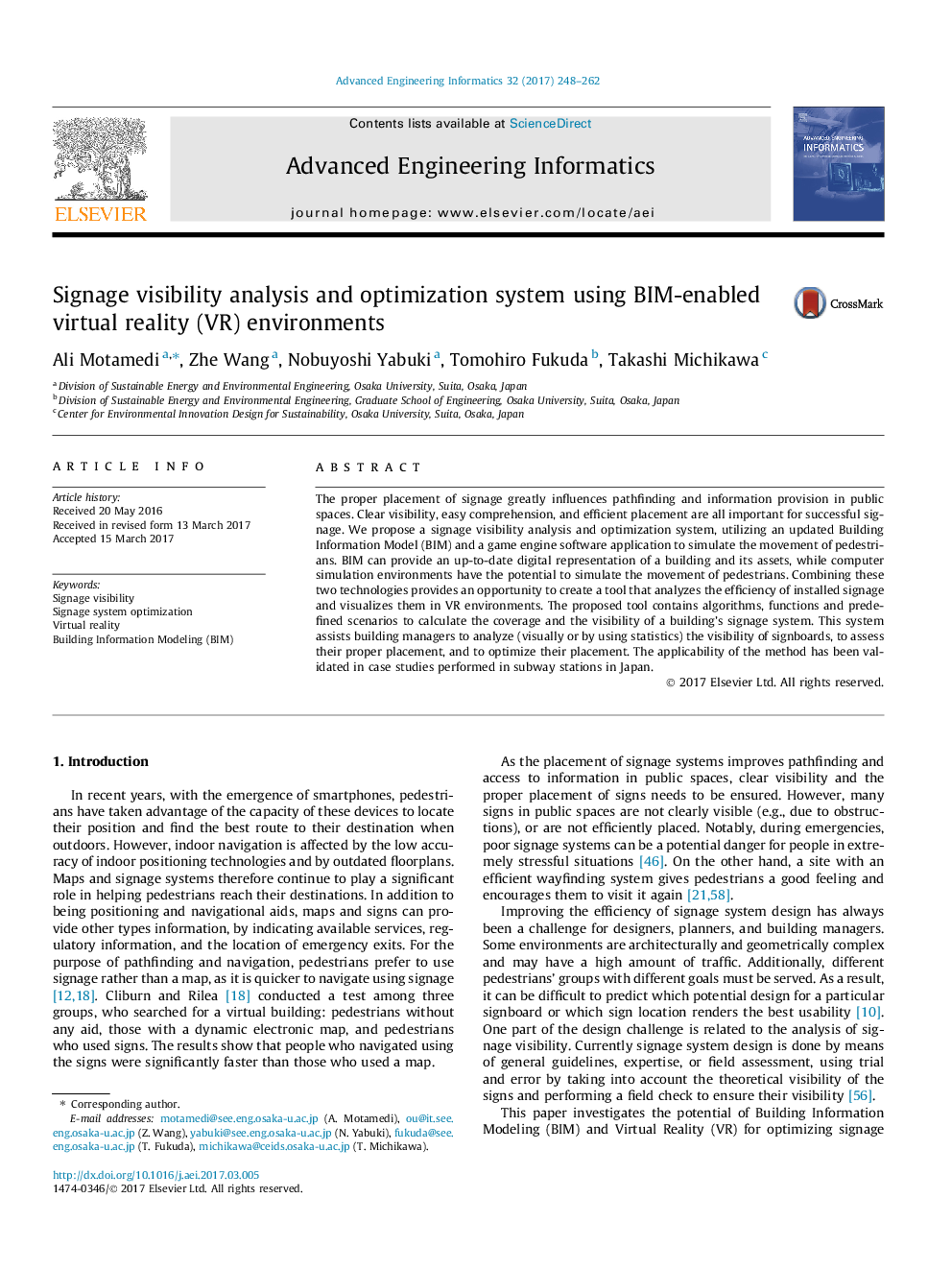| Article ID | Journal | Published Year | Pages | File Type |
|---|---|---|---|---|
| 4911048 | Advanced Engineering Informatics | 2017 | 15 Pages |
Abstract
The proper placement of signage greatly influences pathfinding and information provision in public spaces. Clear visibility, easy comprehension, and efficient placement are all important for successful signage. We propose a signage visibility analysis and optimization system, utilizing an updated Building Information Model (BIM) and a game engine software application to simulate the movement of pedestrians. BIM can provide an up-to-date digital representation of a building and its assets, while computer simulation environments have the potential to simulate the movement of pedestrians. Combining these two technologies provides an opportunity to create a tool that analyzes the efficiency of installed signage and visualizes them in VR environments. The proposed tool contains algorithms, functions and predefined scenarios to calculate the coverage and the visibility of a building's signage system. This system assists building managers to analyze (visually or by using statistics) the visibility of signboards, to assess their proper placement, and to optimize their placement. The applicability of the method has been validated in case studies performed in subway stations in Japan.
Related Topics
Physical Sciences and Engineering
Computer Science
Artificial Intelligence
Authors
Ali Motamedi, Zhe Wang, Nobuyoshi Yabuki, Tomohiro Fukuda, Takashi Michikawa,
